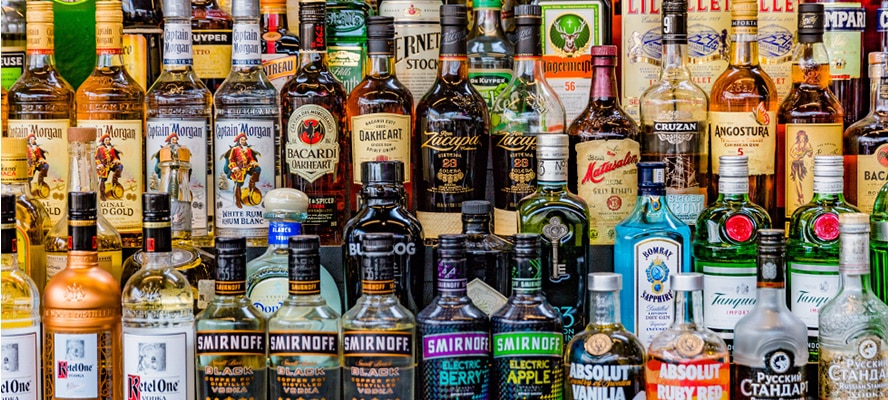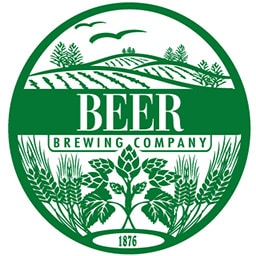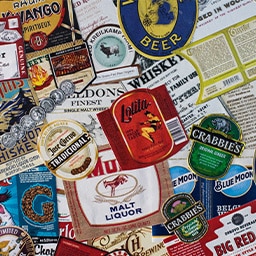Crafting Your Identity: The Importance of Trademarking Your Alcoholic Beverage
In the flourishing landscape of the global alcoholic beverage market, establishing a unique identity is more important than ever. A crucial aspect of this identity is your brand’s trademark. But why is trademarking your alcoholic beverage so crucial, and how can you navigate this complex process? Let’s dive in.
The Power of a Trademark
A trademark isn’t just a logo or a name; it’s a powerful tool that protects your brand and helps customers distinguish your alcoholic beverage from others in the marketplace. In an industry where creativity and innovation thrive, a trademark acts as your brand’s legal shield, protecting your intellectual property rights against potential infringement.
Furthermore, trademarks build brand equity. They communicate your brand’s values, quality, and heritage. Over time, your trademark can become synonymous with the experience of your product, creating a deep emotional connection with your consumers and fostering customer loyalty.
The Trademarking Process
Trademarking your alcoholic beverage isn’t a spontaneous decision; it’s a strategic process that requires careful planning. Here are the steps you need to follow:
1. Research: Start by conducting a comprehensive trademark search. This will ensure your desired trademark isn’t already in use or too similar to existing ones. This step is crucial to prevent potential legal disputes in the future.
2. Application: Once you’ve confirmed the uniqueness of your trademark, you’ll need to file an application with the appropriate governmental body. In the United States, this is the United States Patent and Trademark Office (USPTO). This process requires you to provide detailed information about your brand and your product.
3. Examination: After submitting your application, it will undergo an examination. If it complies with the regulations and doesn’t conflict with any existing trademarks, it will be approved.
4. Publication: Post-approval, your trademark will be published in an official gazette. This gives the public an opportunity to oppose the trademark if they believe it infringes on their rights.
5. Registration: If no opposition arises within the allowed period, your trademark will be registered, granting you exclusive rights to use it for your alcoholic beverage.
Conclusion
Trademarking your alcoholic beverage is a critical step in building a resilient and recognizable brand. It safeguards your brand from infringement, fosters customer loyalty, and ultimately, drives business success. Despite the challenges, navigating the trademark process with careful planning and strategic foresight will ensure your alcoholic beverage stands out in the bustling global marketplace.
Remember, your trademark is more than just a legal necessity – it’s the essence of your brand’s story, a symbol of the quality your customers can expect, and a beacon guiding them back to your product time and time again. So, pour your creativity into your product, but don’t forget to protect it with a trademark. Your brand’s future depends on it.

The Nuances of Alcohol Trademarks
The alcohol industry is one that’s deeply steeped in tradition, but also perpetually evolving with the advent of new technologies and changing consumer tastes. This unique blend of old and new presents particular challenges and opportunities when it comes to trademarking alcoholic beverages.
Category-Specific Considerations
Different categories within the alcohol industry have unique considerations when it comes to trademarks. For instance, in the world of craft beer, the explosion of new breweries means that many names and logos are already in use. The sheer volume of trademarks in this sector can make it difficult to find a unique mark.
Conversely, in the realm of spirits and wines, geographical indicators come into play. Products like Champagne, Bourbon, and Scotch are named after their regions of origin and these names are protected by law. If you’re developing a product in one of these categories, you’ll need to be aware of these restrictions during your trademark development process.
Label and Packaging Trademarks
When it comes to alcoholic beverages, trademarks extend beyond just the name or logo of your product. The design of your labels and packaging can also be trademarked. This includes unique bottle shapes, distinct label designs, and even particular colors.
For instance, the distinctive wax seal on Maker’s Mark bourbon bottles is trademarked. This not only protects the brand against copycats but also serves as a distinctive visual cue that customers can easily recognize on store shelves.
Navigating International Trademark Laws
As you expand your alcoholic beverage brand globally, understanding international trademark laws becomes critical. Different countries have different rules and regulations regarding trademarks, and navigating this complex landscape can be challenging.
For instance, in some countries, a trademark must be used within a certain period after registration, or it may be subject to cancellation. Other countries may not recognize a trademark registered in the United States, necessitating a separate registration process. It’s essential to research and understand the specific trademark laws in any country where you plan to distribute your product.

Final Note
In the dynamic world of alcoholic beverages, a strong trademark is a key ingredient to success. It not only serves as a legal shield but also as a powerful branding tool that resonates with consumers. As you venture into the exciting journey of trademarking your alcoholic beverage, remember to consider the nuances of your product category, the potential for label and packaging trademarks, and the complexities of international trademark laws.
Navigating the world of alcohol trademarks may be intricate, but with careful planning and strategic insight, you can ensure your brand is not only protected but also poised to make a lasting impression in the global marketplace. Your trademark is more than a legal detail—it’s the cornerstone of your brand’s identity, and a testament to the unique experience your product offers. So, raise a glass to your trademark—it’s more than just a mark, it’s the symbol of your brand’s spirit.


